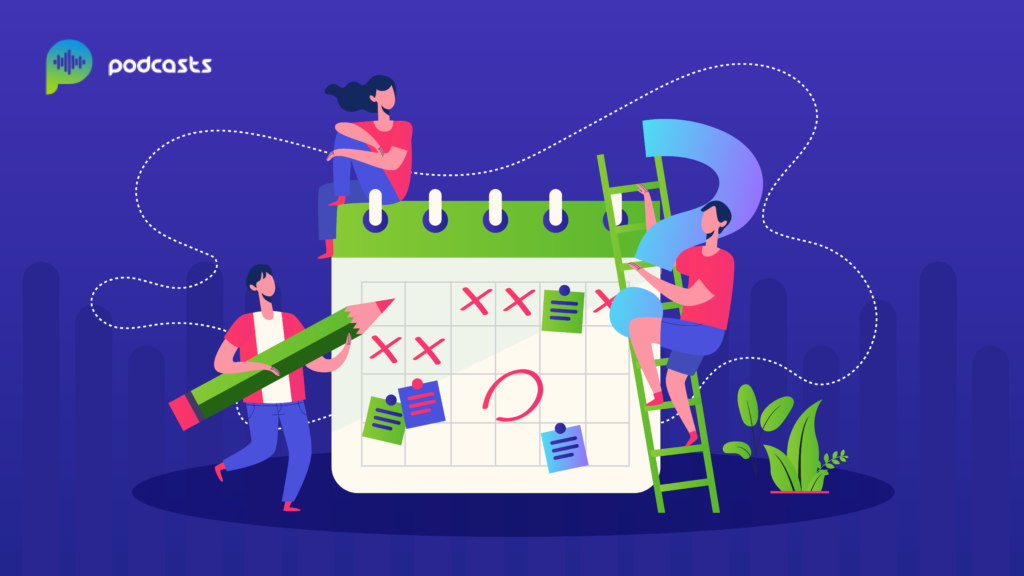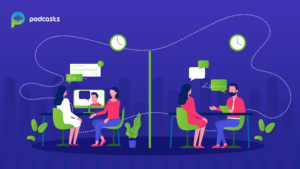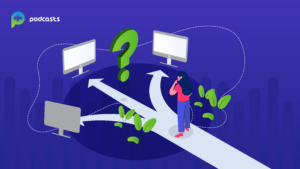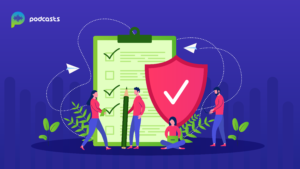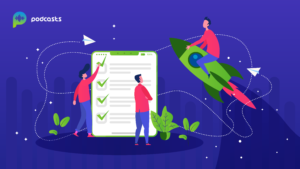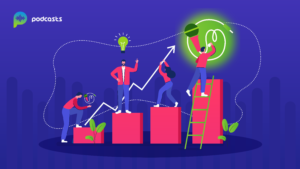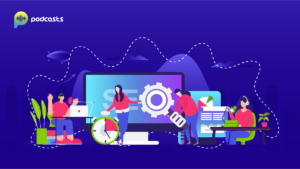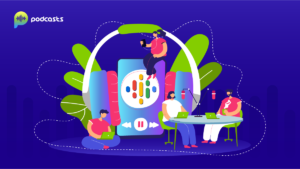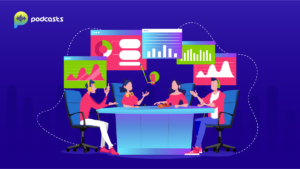There is no question that podcasting has become more and more popular lately. Not only that but, it seems like a new one pops up every day. The reason why is because of the ease and simplicity of it. Although it may be a simple procedure, there are many steps needed when it comes to planning your podcast episodes before going live.
1. Creating an Outline
In order to get started, you will need to have an outline of your episode created first. This includes knowing what the theme will be, what the title will be, required research, any assets that’ll be needed, and if you plan to do any interviewing. It is highly advised that, before starting an episode, a rundown is planned. With a rundown, we’re not talking about what’s going on each second, we’re meaning to just be ready with a plan.
This phase is pretty flexible and allows you to do some brainstorming with ideas. So go ahead, let’s see how creative you can get. You’ll be able to make decisions that are more definitive which could make you surprised when you see how many ways your show could go.
2. Developing a Script Out of Research and Interviews
This part of the planning phase may seem very intensive where the entire outline and its elements start to come together as a whole. So remember, it’s your choice how you want to tackle it.
Research
You can look at any story, whether it’s written or verbal, and see how the research is able to define your podcast so that your points will be driven home, making you able to talk in an intelligent manner while seeming charismatic, authoritative, and engaging towards the audience. The procedure involved may include surfing the web, listening to the work of others, conducting interviews, or reading news or article pieces.
Interviews
No matter how you decide to format your podcast, you need to make sure to stay prepared in case of anything that comes up. This includes if your guests prefer to be interviewed during or prior to the start of your show. As you prepare, you must also know what type of interview it will be. If your interview will be face to face, you would benefit from having an outline and key points ready to discuss. Have the most important points at the ready i.e. any promotion by your interviewee, that way you remember to mention it.
Another good thing to keep in mind is to know how your guest’s name is pronounced. If your interview is not in person, then you will need to ensure that your questions have an increased amount of thought. So if your interview is via phone then you might have to account for any lag that may occur.
Keep in mind of the following as you interview:
- Ensure that your research is done
- Have all of your questions ready
- Supply your guest with a copy of your outline so they’ll know what the topic of discussion will be
- Properly pronounce the name of your guest
- Ensure the interview area is quiet
- Ensure your equipment functions properly prior to the interview
- Limit the amount of time for your interview
Write the Script
Although some podcasters use a script, it is not a true necessity. The best way to conduct your podcast is through improve. However, having a script may seem like an essential tool as there are many popular podcasts that rely on them daily. The good thing is that if you don’t intend to be a heavy talker, then you can skip the script.
As far as what your script includes, a few points could be:
- Introductions of guests
- An episode summary
- An introduction
- Segue
3. Music, Sound Effects and Other Audio
Having great sound from music and alternate sources can be pretty important for a podcast. This includes having sound effects so that your entire podcast will reach a whole new professional level.
Consider these ways to incorporate music and sound:
- As filler
- Before guest introductions
- To mark points for talking
- As theme music for introductions and outros
- To mark a break in the segment
- To have moments reinforced that are comedic or dramatic
- So that a sense of place can be established
With many resources available online you have many downloadable options when it comes to both music and sound.
4. Have the Correct Equipment
There are many types of equipment that can be used during a podcast, but the most essential are:
- A laptop or desktop computer
- A microphone to speak into
Keep in mind that if you plan to have more than one speaker then you’ll need to have a mixer or some sort of audio interface for more than one microphone to speak into.
5. The Right Software is Key
Creating a podcast can be done by anyone as long as you have the tools necessary for it. Having a studio is great if you can afford it, but don’t count on one if you are just starting out.
Regardless of having a killer angle, you will still need to have the right software to get the job done. To help you decide, we’ve listed two of the most popular and widely used software for podcasting.
Audacity
If you plan to use an app for your podcasting software then audacity is perfect for all of your podcasting needs. Although nothing special comes with it, it is perfect for beginners. The software is open-source, can be run on Linux, Windows, and Mac, and a USB mic can be hooked up.
Your dashboard is viewed through the main window. You have easy access to all of the tools for editing, tracks for mix audio, and be able to monitor the recordings. Other than these, Audacity also gives you other sophisticated effects that are able to remove any unwanted sounds like, static or coughs. Unfortunately, instrument plug-ins or MIDI are not supported, so having music added to the podcasting is not going to happen.
Adobe Audition
Adobe Audition is a popular choice for podcasters who are both experienced and just beginning. Adobe Audition is referred to as a Digital Audio Workstation (DAW) and allows the ability to have audio files recorded and edited and mixed as much as you like. It has an option for premium audio software that can be compared to Audacity. You will also receive as much as you put into it as long as the basics are understood.
Many features are available through Adobe Audition that allows your tracks to be professional and crisp. It has good tools for noise reduction and recording multitrack. This lets you have each guest voice‘s leveled and then being able to separately edit them. The price of Audition is not cheap and starts at $20/mo. Though this price is not much to worry about if you are looking for great quality in sound.
6. The Right Location is Vital
The last thing that you want to do is misjudge how sound can affect your podcasting room. Normally, you’ll want to be in an area where your recording will be noise and interruption-free.
Also, keep in mind the sound type that will be generated. You don’t want to sound like you’re in an empty room. Find a place that compliments your acoustics. You can always try being in a small room with furniture that could give you a warm sound. Another option is to add acoustic foam for sound improvement if your original space is not workable.
7. Creating the Cover Art
The cover art is what your potential crowd and subscribers will see as they search through the podcast directory. It is also what others will see on social media as you share it with everyone.
8. Promoting Tips
When you promote your podcast you are making a difference in how many people see and know about your podcast. To get the most benefit out of promoting you should take advantage of the following strategies:
Create More Than 1 Episode Before Launching
On launch day, try to release more than 1 episode for your audience. The last thing you want to do is disappoint your audience with only 1 episode to enjoy when they came to listen to at least 3.
Help to Leverage the Audience
When your guest’s audience is leveraged your guests will be able to share a more as they create quote images and snippets
Conduct Some Social Media Promoting in More Ways than One
There are many different ways that you can promote using social media, but the best way is to simply share it and have your friends share it. Some things that you can share include video, teasers, soundbites, and rich media.
With so much to think about and do when running a podcast, you may need help with social media in promoting your podcast episodes. Growing your following and creating promotional content for your podcast to post on Instagram takes time. Luckily there are several Instagram growth agencies out there to help. However, we recommend Ampfluence as they are the best and most reliable human-powered growth agency out there. We advise staying away from any bot-powered growth services as they can compromise your Instagram account.
Now that you have all of the information about planning your podcast episodes, it’s time to get started so that you can increase your chances of being the next big name in podcasting.

